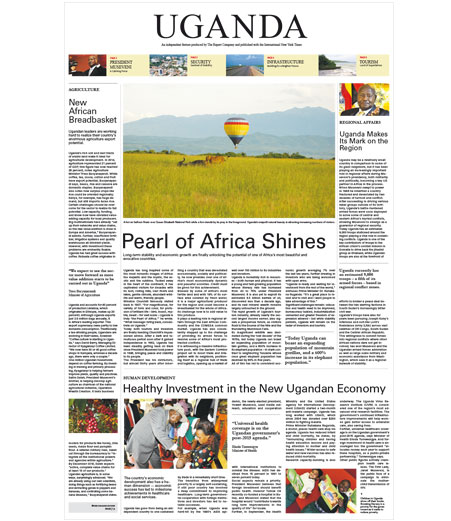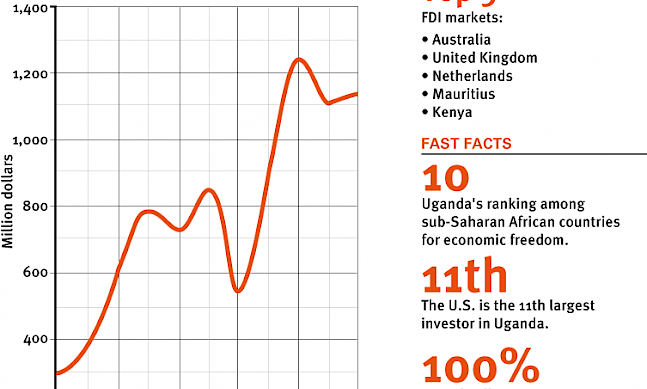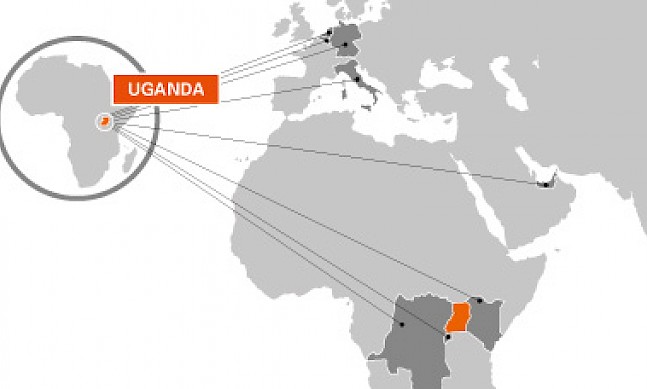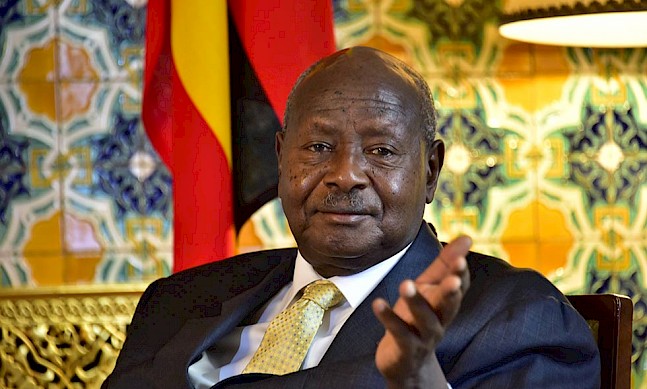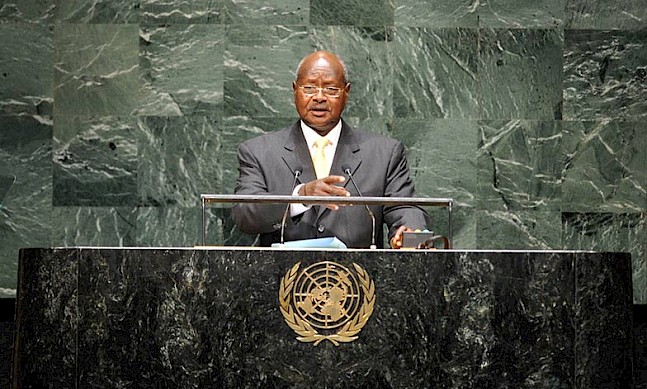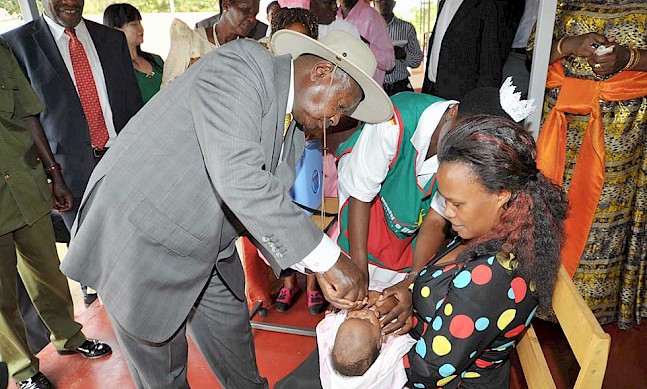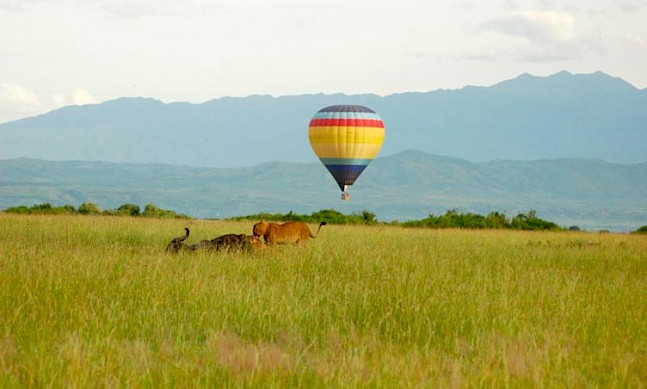Once home to a booming textile industry, Uganda has struggled in the face of stiff competition from Asia. But with a unique value proposition of ethically grown, sustainable cotton, new investor into the country, Fine Spinners hopes to turn Uganda’s dreams of reviving the industry into a reality. Jasvinder Bedi, executive director, explained his plans to The Report Company.
The Report Company: Fine Spinners has recently invested $40 million into Uganda, acquiring two milling factories and signing up 6,000 cotton farmers. What is the idea behind the company?
Jasvinder Bedi: We believe that for you to be competitive you need to be world-class and for you to be world-class you need to have a differentiated product. We are not in the business of competing with China or Bangladesh. We want to give our customers value for money.
We don’t believe in a USP. We believe in a UVP, a unique value proposition. This value proposition is that we are giving our customers a traceable and sustainable cotton story, which is something that has been lacking in this industry. There have been a lot of sweatshops in this business, there have been workers killed in Bangladesh, and basically I think all of this has been a wake-up call for the entire world. We need to look at socially ethical responsible supply chains, especially when it comes to health and safety. I think the timing of this investment was right. We were capturing a moment where everybody was looking at reorganizing supply chains, looking at traceability, and focusing on sustainability.
We also decided that we wanted to be present along the entire value chain in order to be able to cushion our customers from spikes and dips in cotton prices. For that reason we decided to partner with the Cotton made in Africa initiative. This is a big label in Germany that was founded by Dr. Michael Otto with the Bill and Melinda Gates Foundation. Up until now what was happening with Cotton made in Africa was that the cotton was grown in Africa, then exported out of Africa to Asia for processing, and then over to Germany for sale. Its true value was never captured in Africa. This is the first investment in Africa where we will capture the full value in our investment from field to fashion. We will have a fully compliant, sustainable supply chain.
We are very excited that it will be successful. We’ve already got buyers knocking at our door. Our first exports will start later this year and at the moment what we’re doing is training the workers, training the people, getting the mindset right and the productivity up.
TRC: What are your projections for the first year?
JB: We’re doing some local business just to get the training up, but then we have been in discussions with H&M, with PVH Group who own brands like Tommy Hilfiger and Calvin Klein. We are already doing business with this group in our Kenyan factory.
The advantage for us is immense in Uganda. From Kenya we had advantages into Europe, the U.S. and of course Africa, but from Uganda we have a much bigger opportunity. Besides Europe, the U.S. and Africa we’ve got Russia, Canada, Australia, Japan, India and China that are all duty free. That’s another opportunity for us. We have the whole world as our oyster and it’s looking very interesting.
In our first year in production, we will use 20 percent of Uganda’s crop. Next year, our plan is to use 40 percent of Uganda’s crop. Currently Uganda exports about 100,000 bales per year which generates about $200 million for them, but if you add value to all that cotton, we’re talking about $3 billion. In Uganda everything is local and we don’t have to import any material so it’s a great opportunity for being located at the source.
TRC: Do you think the textiles industry could transform Uganda’s economy?
JB: You don’t need to reinvent the wheel when you want to industrialize your country. Basic industry employs people and what you need is jobs in the first instance. Once you have jobs, you have disposable income and then it snowballs from there.
I have a bigger agenda and it’s an Africa-wide agenda. I am chairman of the African Cotton and Textile Industry’s Federation. This covers 27 African countries and we produce seven percent of the world’s cotton. We just need to add value to that cotton and we will create nine million jobs on the continent. Those jobs are important for the continent. We need social peace on the continent, we need to squash this breeding of terrorist cells which are all over because of joblessness and hopelessness, and the only way we can do this is by creating jobs.
That is the great vision. And it’s a pan-African vision. This is the first step that we’ve taken in Uganda. We already have investments in Kenya and we’ll move to the rest of the continent thereafter but this is a great stepping stone for us and we’re very excited.
TRC: Why did you come from Kenya to Uganda?
JB: I grew up in the textile business in Kenya. We’ve been importing Ugandan cotton for our factories in Kenya for years and every time you import you’re actually importing 30 percent waste because of processing losses in spinning. Therefore, you’re paying transport on waste. This doesn’t make sense to me commercially or economically. Rather than import waste, I thought it was better to go to the source, make the product at source and save on the logistics. That gives us a competitive advantage.
People said to me, “you’re going to a landlocked country”. I said no, it’s a land-linked country. We can offer speed to market. The outbound traffic from Kampala to Mombasa is brilliant and the return cargo is not expensive. Under the East African Community we have ease of traffic and no internal tariffs so there are no technical barriers to trade and we can work in each other’s countries.
TRC: What growth do you project for the company?
JB: Our year one production here is going to be $11 million and by year five we’re going to hit $50 million. The way it’s looking right now, we might hit our year five revenue in year three. That’s the demand that we’re seeing right now. We just need to manage demand. We need to expand, so we’ve got a whole new team and a new CEO who is going to drive the whole thing.
TRC: How would you appraise the ease of doing business in Uganda?
JB: The enabling environment is what we really liked when we came here. They have a national textile policy which most people don’t have and they’re ready to stand by their own policy, which is a good thing in Africa. It’s one thing having a policy and another to implement it. I recently went to the Uganda Revenue Authority for some clarification on taxation laws and at the end of my meeting, the commissioner came and thanked me for our investment in the country. That tells you the country is friendly and open for business.
People appreciate your presence and they want you here because you’re creating jobs. We are looking at having over 3,000 people in this factory and we’ll be buying the whole crop from smallholder farmers in Kasese. We have lots of ideas on how to help and work with the Cotton Development Authority to boost yields.
TRC: What is your outlook on the U.S. African Growth and Opportunity Act (AGOA)?
JB: AGOA is probably the most liberal trade preference program given to any region in the world by the United States and I think we’ve got to appreciate that and thank the U.S. for that. Trade has grown both ways for America and for Africa. The Obama Administration has said it is totally committed to a seamless renewal of the program and I’m going to be part of the lobby mission in Washington DC. The good thing is that this is the only legislation in the U.S. to get bipartisan support. Everybody is looking at Africa as the last frontier. I don’t think there’s much left in the world. For that reason I think it will happen because it’s in America’s interests.
TRC: Why has Uganda not been able to capitalize fully on the opportunities AGOA offers?
JB: Uganda has not been able to capitalize on the boom under AGOA primarily because of the speed to market. To go inland with a supply chain doesn’t make sense because it’s a logistical nightmare due to the poor infrastructure in Africa. What we are doing is totally in reverse. We’re using Ugandan material and taking it to the world stage. That’s how we can offer speed to market.
TRC: What sets Ugandan cotton apart?
JB: Garment quality is subjective and it depends on the target market. We are targetting the high-end market and there’s no place there for inferior quality. Ugandan cotton itself is so much more superior, so it just gives you a competitive advantage right before you start. It’s handpicked, not machine picked, and because of that it’s a superior cotton. When you start with better cotton, you get a better product. We’re also putting in state of the art machinery in this factory to make sure we have a world-class product.
TRC: What do you think investors should understand about Uganda?
JB: My message is simple. Africa is waking up and it is open for business. Don’t look at Africa with your yesterday’s eyes; you need to look at it with your tomorrow’s eyes. Yes it’s going to be strategic and yes it’s got the manpower, the climate, the facilities, and everything that one investor would want to be comfortable and to drive a business in a profitable scenario.


